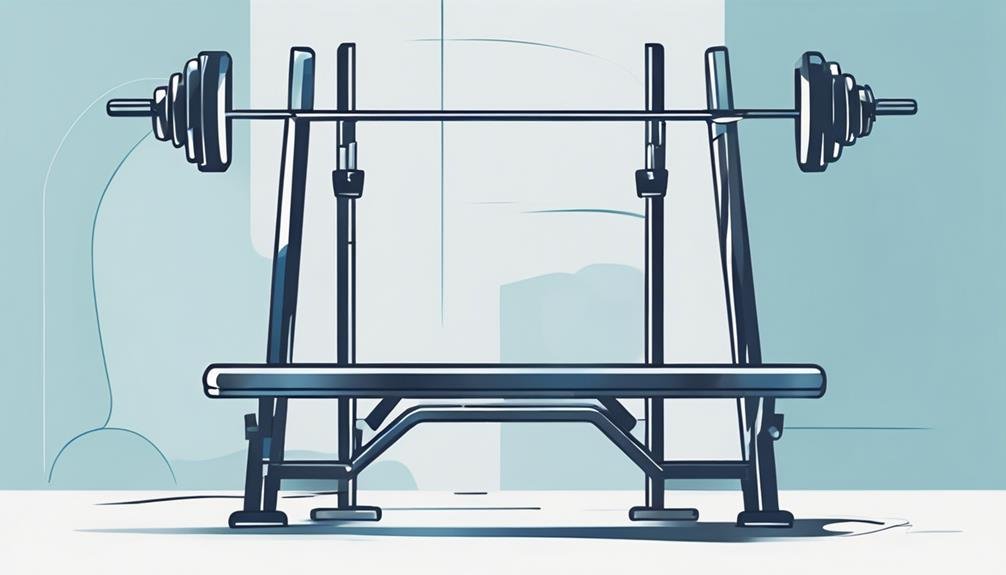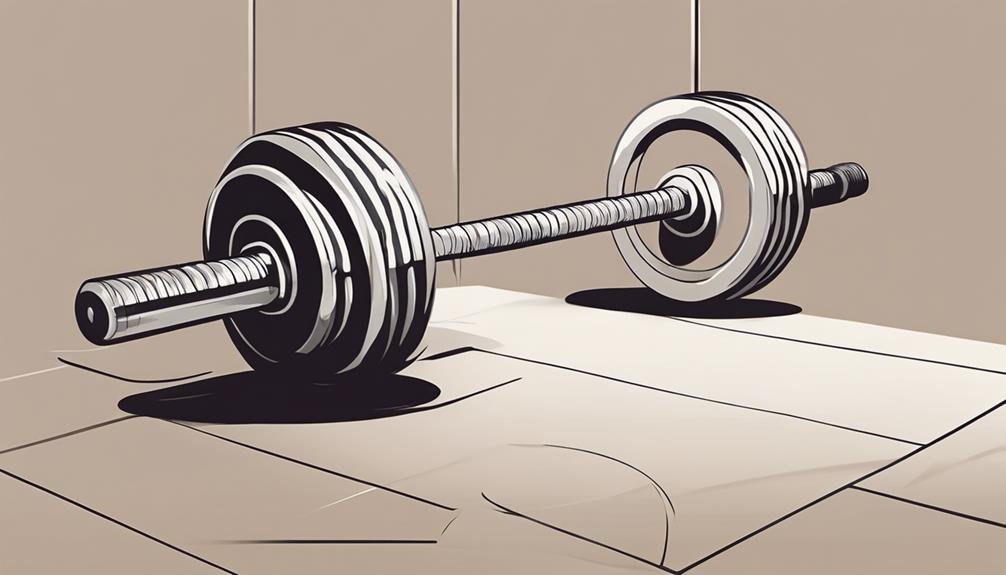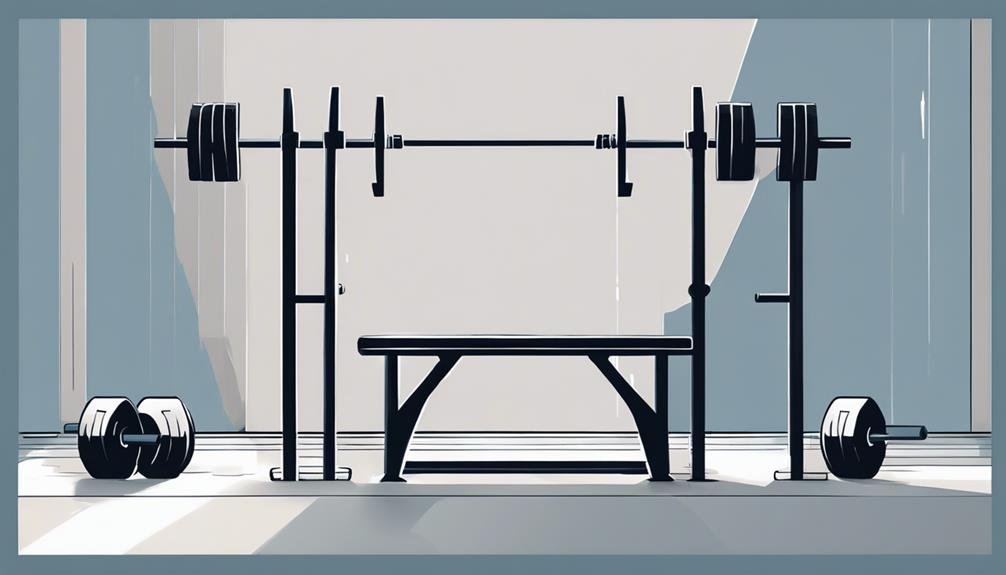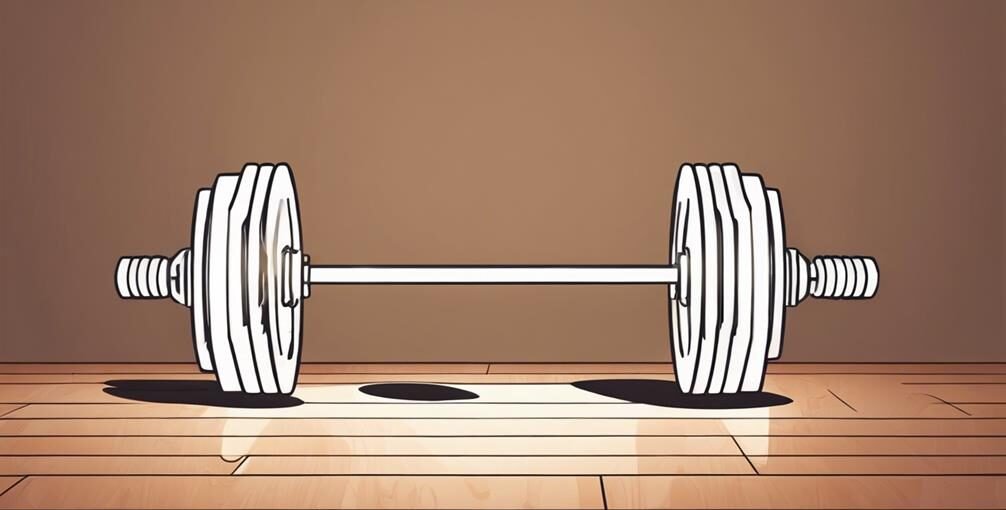What Weightlifting Does to Men's Testosterone Levels?
Weightlifting considerably boosts your testosterone levels, which is essential for muscle growth, energy, and mood. When you lift weights, your body releases a surge of testosterone, improving your physical performance and overall health. This hormonal boost not only enhances your muscle mass but also helps reduce body fat. Regular strength training, especially with free weights or HIIT, keeps testosterone levels elevated over time, countering the natural decline that begins in your late 30s. Prioritizing recovery and proper nutrition can further optimize these benefits. Stick with it, and you'll discover even more advantages for your health and fitness journey.
Key Takeaways
- Weightlifting significantly boosts testosterone levels during and after workouts, enhancing muscle growth and physical performance.
- Regular resistance training stimulates natural hormone production, helping maintain testosterone levels as men age.
- Increased testosterone from weightlifting improves mood, focus, and libido, contributing to overall well-being.
- Adequate recovery and sleep after weightlifting sessions are essential for optimizing testosterone levels.
Importance of Testosterone
Testosterone plays an essential role in men's health, influencing everything from muscle growth to mood regulation.
It's vital for maintaining energy levels, supporting libido, and promoting overall well-being. When your testosterone levels are balanced, you'll likely experience improved cognitive function and better emotional stability.
Low testosterone can lead to fatigue, depression, and a decrease in motivation. You might also notice a decline in bone density and increased body fat if your levels drop.
To optimize your testosterone, focus on a healthy lifestyle, including proper nutrition, regular exercise, and adequate sleep.
Recognizing the importance of testosterone in your life can empower you to make choices that enhance your physical and mental health, ultimately leading to a more fulfilling and active lifestyle.
Effects of Weightlifting

Weightlifting can considerably boost your testosterone levels, enhancing both your physical performance and overall health. As you lift weights, your body responds by releasing testosterone, which helps increase muscle mass, reduce fat, and improve energy levels. This surge in testosterone can elevate your mood, sharpen your focus, and even enhance your libido.
| Benefit | Feeling | Result |
|---|---|---|
| Increased Strength | Empowered | Achieve fitness goals |
| Enhanced Mood | Motivated | Improved daily life |
| Boosted Energy | Invigorated | More productive days |
Types of Weight Training
Exploring different types of weight training can help you find the most effective methods to boost your strength and testosterone levels.
You might consider free weights, like dumbbells and barbells, which allow for greater range of motion and muscle engagement.
Resistance machines are another option, providing guided movement and support, making them ideal for beginners.
Bodyweight exercises, such as push-ups or squats, can also be beneficial, as they use your own weight to build strength.
High-intensity interval training (HIIT) incorporating weights can further elevate testosterone levels by maximizing effort in shorter periods.
Finally, circuit training combines various exercises in a sequence, promoting endurance and strength simultaneously.
Experimenting with these styles can help you discover what works best for your body.
Age and Testosterone Levels

As men age, they often experience a natural decline in testosterone levels, which can impact muscle mass, energy, and overall vigor. This decrease typically begins in the late 30s and continues gradually, leading to noticeable changes in strength and stamina.
You might find it harder to build muscle or recover from workouts as quickly as before. Additionally, lower testosterone can affect mood and motivation, making it vital to stay active.
Engaging in regular weightlifting can be a game-changer; it not only stimulates testosterone production but also helps counterbalance age-related decline. By incorporating resistance training into your routine, you can maintain muscle mass and support overall health, which is especially important as the years go by.
Nutrition's Role in Hormone Balance
Maintaining hormone balance, particularly testosterone levels, can greatly benefit from the right nutrition choices. The foods you eat play a significant role in supporting your hormonal health. Here's a quick look at some key nutrients and their sources:
| Nutrient | Food Sources | Benefits |
|---|---|---|
| Zinc | Oysters, beef, beans | Supports testosterone production |
| Vitamin D | Fatty fish, egg yolks | Enhances testosterone levels |
| Healthy Fats | Avocados, nuts, olive oil | Aids hormone synthesis |
| Magnesium | Dark chocolate, spinach | Regulates hormone levels |
| Protein | Chicken, fish, legumes | Builds muscle, boosts testosterone |
Incorporating these nutrients into your diet can help optimize your testosterone levels, making it easier to achieve your fitness goals.
Recovery and Rest Impact

Adequate recovery and rest are essential for optimizing testosterone levels and enhancing your overall performance in weightlifting.
When you push your body during training, it creates micro-tears in your muscles, which need time to heal. If you don't allow for sufficient recovery, your body's stress levels can increase, leading to a decrease in testosterone production.
Getting enough sleep is vital; aim for 7-9 hours per night to support hormone regulation. Additionally, incorporating rest days into your workout routine gives your muscles time to rebuild and grow stronger.
Listen to your body—if you feel fatigued or overtrained, don't hesitate to take a break. Prioritizing recovery not only boosts testosterone but also maximizes your gains in the gym.
Long-Term Benefits of Weightlifting

Building a consistent weightlifting routine not only enhances your strength but also contributes to long-term health benefits, including improved testosterone levels and overall well-being.
As you lift weights regularly, you stimulate your body's natural hormone production, leading to increased testosterone levels. This boost can enhance your muscle mass, energy levels, and even mood.
Over time, consistent weightlifting helps maintain bone density, reducing the risk of osteoporosis as you age. Additionally, it can improve insulin sensitivity, lowering the risk of type 2 diabetes.
You'll also notice better cardiovascular health and reduced stress. By committing to weightlifting, you're investing in your physical health and mental resilience, paving the way for a more vibrant and active life.
Questions
Can Women Also Benefit From Weightlifting's Impact on Testosterone Levels?
You can benefit from weightlifting, as it helps boost hormone levels, including testosterone, even in women. This increase can enhance muscle strength, energy, and overall well-being, making weightlifting a great choice for everyone.
How Often Should I Lift Weights to Boost Testosterone?
Lifting weights just twice a week can increase testosterone levels considerably. Aim for 3-4 sessions, focusing on compound movements like squats and deadlifts. Consistency's key, so stay committed to your routine for the best results!
Do Specific Weightlifting Techniques Enhance Testosterone More Than Others?
Certain weightlifting techniques, like compound exercises, can boost testosterone more effectively than isolation movements. Focusing on heavy lifts, low reps, and progressive overload in your routine'll maximize hormonal benefits and support your overall strength gains.
Is There an Optimal Time of Day for Weightlifting?
Studies show that 60% of people feel more energized when they lift weights in the afternoon. You'll likely find your strength peaks around that time, making it an ideal choice for your workouts.
How Does Alcohol Consumption Affect Testosterone Levels After Weightlifting?
Alcohol consumption can lower your testosterone levels after weightlifting. If you drink too much, it can negate your hard work, hinder muscle recovery, and ultimately affect your fitness goals. Moderation is key for ideal results.
Conclusion
In the grand tapestry of health, weightlifting serves as a powerful loom, weaving together strength and vitality.
As you lift, you're not just hoisting weights; you're elevating your testosterone levels, igniting a fire that fuels both body and mind.
Embrace the journey of recovery and nutrition, for they're the threads that guarantee your masterpiece endures.
Ultimately, each rep is a step toward not just muscle, but a robust life, rich in vigor and resilience.
Keep lifting your potential.

